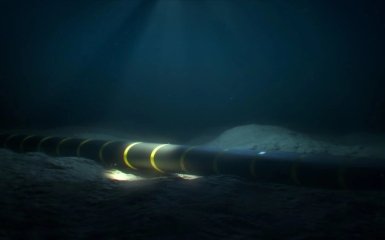According to Deputy Commander of the NATO Naval Forces, Vice Admiral Didier Maleter, Russia's attempts to attack underwater infrastructure endangers the safety of 1 billion people in EU countries and North America.
What is known about Russia's attempts to attack the strategic infrastructure of Western countries
Maleter noted that the network of submarine communication cables and power supply of Western countries has no protection against hybrid attacks by Russia and other countries that oppose NATO.
We know that the Russians have developed a lot of hybrid underwater warfare to disrupt the European economy, via cables, internet cables, pipelines. Our entire economy is under water at risk. And to be perfectly clear, we know that the Russians have developed nuclear submarines to operate at sea. So we are not naive, and we work together, stressed the high-ranking NATO representative.
Maleter made the statement amid two incidents of alleged sabotage on gas pipelines in the Baltic region in the past 18 months — first on Nord Stream 1 and 2 in September 2022 and then on the Baltic Connector last October.
Several EU states and NATO members conducted large-scale investigations into these incidents' circumstances, but they remained unsolved.
Finland said in December that "everything indicates" that a Chinese ship deliberately damaged the Balticconnector's anchor.
NATO is sounding the alarm because of the vulnerability of underwater infrastructure
Maleter emphasised that the situation has changed radically since the creation of underwater infrastructure by private companies.
Currently, this infrastructure is highly vulnerable to hybrid attacks.
Little did they know that hybrid warfare would develop so quickly. More than 90% is under water. All our communication channels between the USA, Canada and Europe pass under water, so there are many vulnerable places, explains the NATO military officer.
According to him, despite the growing role of offshore wind energy in achieving climate goals, underwater infrastructure remains important and has systemic vulnerabilities.
This is a very important issue because it is a security issue for the nation's nearly 1 billion civilians. We must be protected and well-provided with our vital underwater infrastructures, Maleter emphasised.
But, according to him, even with a significant presence of NATO, it is impossible to protect every object of underwater infrastructure; therefore, the primary responsibility for the protection of their infrastructure lies with the states.




